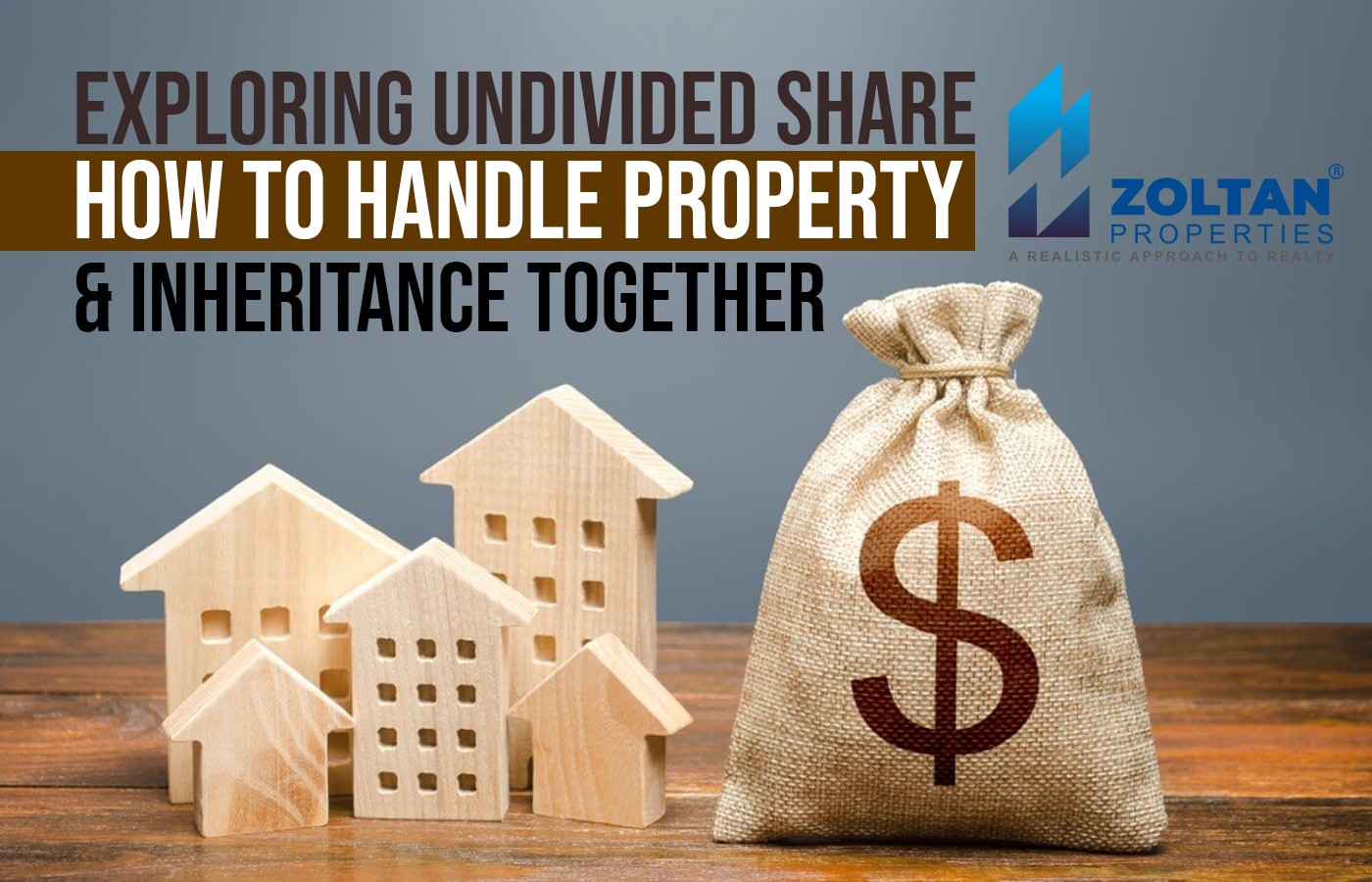In the realm of property law, the concept of an "undivided share" plays a pivotal role, especially in the context of joint ownership and inheritance. This term refers to an individual's interest or stake in a piece of property that is co-owned with others, without any specific portion of the property being exclusively theirs. This situation often arises in joint family properties, shared investments, or inherited assets where the property is owned collectively by all parties, but the exact boundaries are not defined.
The Essence of Undivided Share
An undivided share grants each co-owner a right to the entire property rather than to a specific section of it. This means that no single owner can claim ownership over any specific part of the property exclusively. Instead, each owner's share is abstract and relates to the property as a whole. This concept is crucial in situations where dividing a property physically is either impossible or impractical, such as in apartment buildings, family estates, or any property where division would significantly reduce the value or utility of the property.

Legal Implications and Rights
The legal framework surrounding undivided shares is complex and varies significantly across jurisdictions. However, some common legal principles include:
Right to use: Despite not owning a specific part of the property, each co-owner has the right to use the entire property within reasonable bounds.
Right to profits: Any income or profits generated from the property (e.g., rent, sale proceeds) must be shared among the co-owners according to their respective shares.
Right to alienation: Co-owners can usually sell or transfer their undivided share, but this does not include the right to partition the property without the consent of the other co-owners.
See Also: An In-depth Guide to the Most Budget-Friendly Cities in 2023 and Projections for 2024
How to calculate UDS ?
UDS, or Undivided Share of Land, can be determined using a straightforward formula. It involves multiplying the total land area by the size of an individual apartment and then dividing this result by the total area of all apartments in the project. This calculation is expressed as follows:
UDS = Individual Apartment Super Built-Up Area / Sum of all Apartments’ Super Built-Up Area x Total Land Area
For example, consider a scenario where a 2BHK flat is constructed on a 1,000 sq ft land, and there are five units, each with the same dimensions. In this case, each owner's UDS would be 200 sq ft.
In situations where the complex comprises various unit types, the UDS is proportional to the size of the apartment. For instance, if a 3BHK flat is part of a complex with a total of 200 flats (100 1BHKs, 50 2BHKs, and 50 3BHKs) and the total land area is 40,000 sq ft, the UDS calculation is as follows:
UDS for 3BHK = 1,500/175,000 × 40,000 = 340sq ft
Similarly, for a 2BHK owner:
UDS for 2BHK = 1,000/175,000 × 40,000 = 228sq ft
And for a 1BHK owner:
UDS for 1BHK = 500/175,000 × 40,000 = 114sq ft
This calculation ensures that each apartment owner's share of the undivided land is determined proportionally based on the size of their respective units in the overall project.

Challenges in Management and Disposal
Managing a property held in undivided shares can present significant challenges, particularly when co-owners have differing opinions on its use, maintenance, or disposal. Selling a property with undivided shares often requires the agreement of all co-owners or, in some cases, a legal partition. This can lead to disputes, especially in cases of inherited property where emotional ties and familial relationships complicate decision-making.
Solutions and Strategies
To navigate the complexities of owning property with undivided shares, co-owners can adopt several strategies:
Legal agreements: Drafting a comprehensive agreement that outlines the rights, responsibilities, and dispute resolution mechanisms for all co-owners can preempt many common issues.
Partition: In cases where co-ownership is no longer feasible, seeking a legal partition of the property—either physically dividing it or selling it and dividing the proceeds—may be the best solution.
Mediation: For resolving disputes, mediation by a neutral third party can help co-owners reach a mutually acceptable decision without the need for litigation.
Conclusion
Undivided shares in property ownership encapsulate the delicate balance between individual rights and collective responsibility. While offering a way to co-own valuable assets, they also demand a high level of cooperation and communication among co-owners. Understanding the legal and practical implications of undivided shares is crucial for anyone navigating this complex area of property law. By fostering clear communication, drafting detailed agreements, and seeking amicable resolutions to disputes, co-owners can ensure that their shared property remains a benefit, not a burden.
Check out our next blog: Real Estate Investment Solutions for Maximum ROI

 IN
IN
 France
France
 Germany
Germany
 Greece
Greece
 India
India
 Saudi Arabia
Saudi Arabia
 Spain
Spain
 United Arab Emirates
United Arab Emirates
 United Kingdom
United Kingdom
 United States
United States






